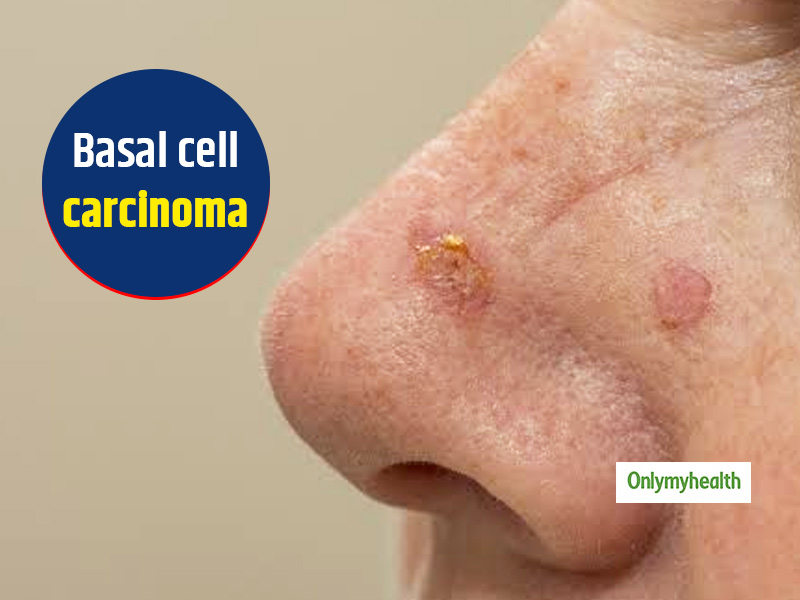
Basal cell carcinoma (BCC) is the most common form of skin cancer. It doesn't cause much damage and can be treated at early stages. This skin cancer doesn't spread mostly but if it does, can be very dangerous and aggressive. According to the structure of the skin, it has many layers. Topmost layer followed by the middle layer and then comes the deepest layer. There are three main types of cells in this top layer of the skin. Basal cell carcinoma occurs whenever there is a damage to the basal cells in the outermost layer of the skin. In this type of skin cancer, new skin cells get produced and the old ones die. Onlymyhealth editorial team spoke to Dr. Ashok Vaid, Chairman, Medical Oncology and Hematology, Medanta and a patron of SeekMed, about the symptoms, causes and treatment for Basal Cell Carcinoma.
Table of Content:-
Basal cell carcinoma causes

So, basal skin carcinoma is essentially damage to the outermost layer of the skin. And, most of this damage is caused predominantly by exposure to ultraviolet radiations from the sun and can also be triggered by indoor tanning. When UV rays hit your skin, over time, they can damage the DNA in your skin cells. The whole process might even take years to result in this disease. The most important fact to remember is that basal cell carcinoma should not be left untreated. It may look like it's healing on its own, but it doesn't go completely without proper treatment. The look is different from people to people.
Basal Cell Carcinoma warning signs
Basal cell carcinoma mostly appears on the neck or face. It is mostly seen on the sun exposed areas and looks like a white or brown waxy lump. Is is basically a growth or sore on the skin that won't heal. According to Dr. Ashok Vaid, there is a whole spectrum of symptoms in basal cell carcinoma.
Also read: Types Of Cancer Patients And Tips On How Risk Can Be Reduced In This Pandemic Phase

They are:
- Crusting on skin
- Open sore
- Flat white or yellow scar (can be waxy)
- Itching
- Bleeding
- White or pink bump
- Bruises
- Elevated nodule formation
Basal cell carcinoma treatment

Dr. Ashok said, "The definitive treatment for this skin cancer is surgery. Because, basal cell is called a proliferative and locally spreading disease. It stays there but if not treated for sometime, it can dig deeper into the skin and even into the bone at times. Therefore, surgery is the preferred treatment for nasal cell carcinoma. One may use radiation but in very less patients and not for everyone. There are no good medications to treat it as it is a very slow growing cancer."
These were the symptoms, causes and treatment for nasal cell carcinoma. For all the patients, just take care of yourself by taking proper treatment from an oncologist, keeping an eye on your skin, using sunscreen and avoiding too much sun exposure.
Read more articles on Cancer
Also watch this video
How we keep this article up to date:
We work with experts and keep a close eye on the latest in health and wellness. Whenever there is a new research or helpful information, we update our articles with accurate and useful advice.
Current Version